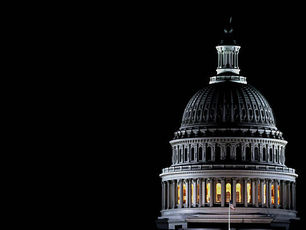
News & Politics Entertainment Religion
Lifestyle
African American Interests
News created to
Educate. Empower. Inspire.

Salinas-based produce supplier Taylor Fresh Foods is facing lawsuits from nine victims of a November E. coli outbreak that was not disclosed to the public.

Describe your image

Describe your image

Salinas-based produce supplier Taylor Fresh Foods is facing lawsuits from nine victims of a November E. coli outbreak that was not disclosed to the public.
Trump Administration Reverses Student Loan Cancellation
Twitter Feed
(TSN): The White House has served notice to student loan borrowers who applied for debt cancellation under the Biden Administration that they must pay.
Effective May 5, 2025, the U.S. Department of Education will resume collections on defaulted federal student loans, ending a pause that began in March 2020 due to the COVID-19 pandemic. This decision affects over 5 million borrowers currently in default and an additional 4 million who are delinquent. The Department of Education plans to initiate wage garnishment processes by the summer for non-compliant borrowers.
Borrowers in default can opt for loan rehabilitation to avoid garnishment.
Press Secretary Karoline Leavitt said when making the announcement that if you take out a federal educational loan you must be responsible for paying it instead of burdening taxpayers and contributing to the national debt.
The cancellation of student loans has a significant impact on Black borrowers, who are disproportionately affected by student debt in the U.S.
Real-Life Impact on Black Borrowers
-
After 12 years of repayment, the typical Black borrower still owes 13% more than they originally borrowed.
-
In contrast, white borrowers typically owe 35% less after the same period.
-
HBCU Grads and Loan Disparities
-
Many Black students attend Historically Black Colleges and Universities (HBCUs), which often have less funding than predominantly white institutions.
-
Students at HBCUs borrow more and default more often—not because they’re irresponsible, but because of systemic underinvestment.
-
Cancellation can be especially transformative for these alumni.
-
Predatory For-Profit Colleges
-
Many Black students were funneled into for-profit schools that promised high-paying jobs but delivered poor outcomes.
-
The Biden administration has already canceled billions in debt for students defrauded by these institutions—this disproportionately helps Black borrowers.
2. HBCU Grads and Loan Disparities
-
Many Black students attend Historically Black Colleges and Universities (HBCUs), which often have less funding than predominantly white institutions.
-
Students at HBCUs borrow more and default more often—not because they’re irresponsible, but because of systemic underinvestment.
-
Cancellation can be especially transformative for these alumni.
3. Predatory For-Profit Colleges
-
Many Black students were funneled into for-profit schools that promised high-paying jobs but delivered poor outcomes.
-
The Biden administration has already canceled billions in debt for students defrauded by these institutions—this disproportionately helps Black borrowers.
THE BIG ISSUE: The U.S. Department of Education's cancellation of student debt relief will affect millions of borrowers. Most of them are Black. “Student loan cancellation isn’t just financial relief—it’s a civil rights issue.” – NAACP
LISTEN TO THIS ARTICLE

Popular on This Site
Headturners
03
This is a title. Click here to edit and add your own text.
04
This is an extra long title. Click here to edit and add your own text. It's easy.

AIR DATES & TUNE IN ALERTS
BLACK FACTS

The Nation
Entertainment
Entertainment
White House Direct
Politics
Religion
SLICE CAM
IN FOCUS

From coast-to-coast on radio tune in to the Slice Report. You'll hear a variety of news, entertainment and interviews. You can also listen on Amazon Alexa worldwide. Or simply CLICK BELOW while you are navigating any page on this site


























































